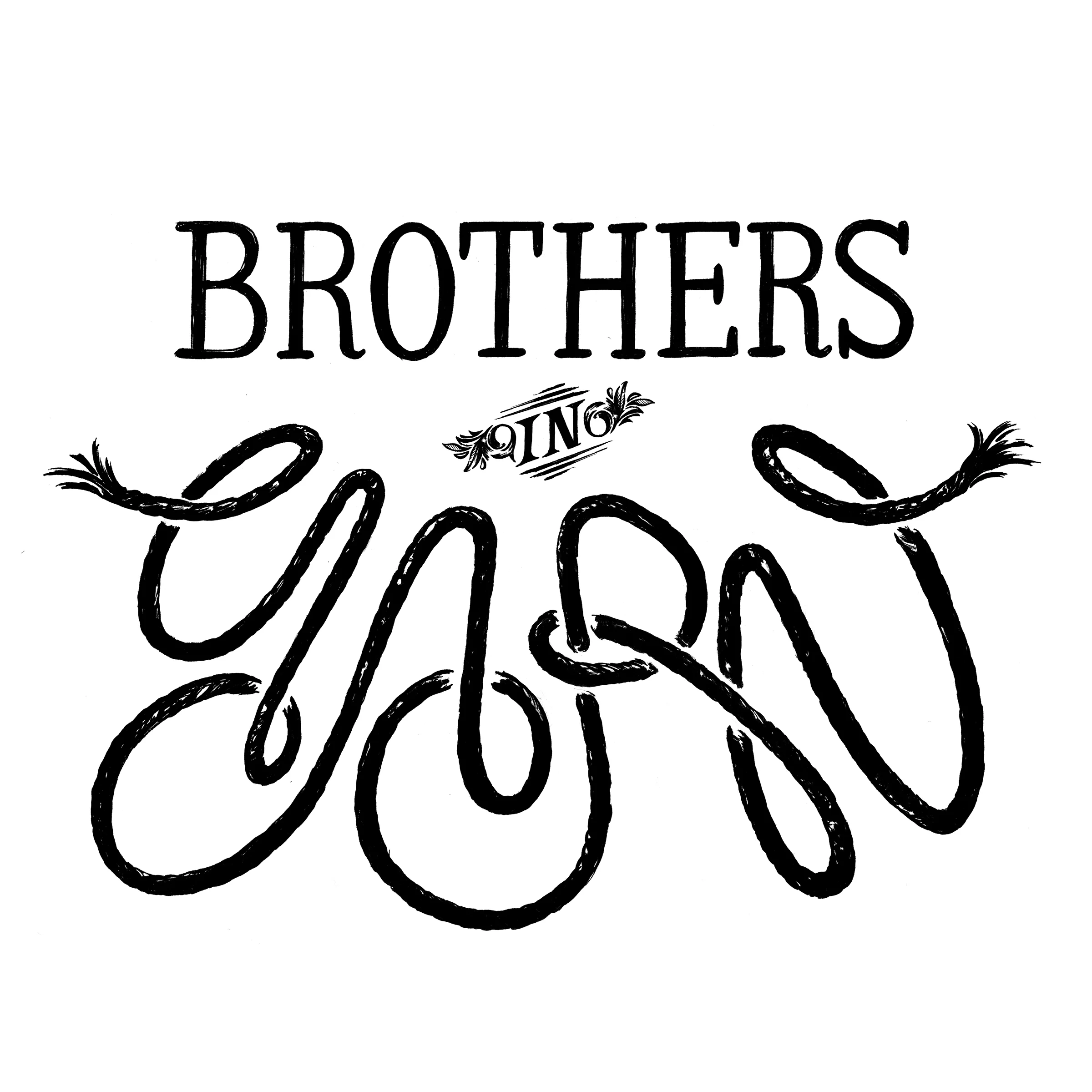“The material carries an undeniable emotional complexity, avoiding the binary of happy and sad but instead exploring those shades between, the darkness lurking in the light as well as the light breaking through the dark. ”
Halfway through the writing of their last record, Searching for Sunlig ht, Golden Bloom frontman Shawn Fogel found himself with an inconvenient problem: the worst writer’s block he’d ever faced. A friend suggested he read a book to try and shake off the blank page and get out of his own head. Fogel realized it had been a while since he’d sat down and made the effort to read a book: between modern day distractions like Netflix and Facebook, it had become easier and easier to avoid the kind of commitment books require. He decided to make a New Year’s Resolution to read one book a month and write a song about each one. Brothers in Yarn was born.
“Like all good New Year’s Resolutions, I made it six months before I quit,” Fogel laughs. And while it’s easy to laugh with him, it would be a huge disservice not to take Brothers in Yarn, both the band and the EP, Volume 1, seriously. The books did the trick: good art inspired more good art, and Fogel was able to break through his writer’s block. There were no rules about genre or topic, drawing on everything from Young Adult to Nonfiction. “I realized that all of the songs I had been writing for Golden Bloom were about me. Writing about something other than myself was incredibly freeing, and these songs that would beco me Volume 1 felt effortlessly written.”
Recorded almost entirely by Fogel in his home studio, punctuated by the powerhouse drumming of Jason Hammel (Mates of State), and mixed by Greg Giorgio (The National, The Head and The Heart), this debut Brothers in Yarn is Fogel’s most adventurous work to date.
“A Million Tiny Arms” kicks off the EP with a fast, shuffling drum loop and melodic hooks that make it feel like great ‘80s pop. Inspired by Ro ald Dahl’s Matilda, Fogel finds common ground with the title character when he sings, “Limitless within her mind, but heavy in her heart.” The next song, based on fellow songwriter John Darnielle’s recent bestseller Wolf in White Van, “Simple Math and Its Consequences” is a dystopian minorkeyed trip through the book. Though the tone evokes modern pop like Imagine Dragons, the lyrics ignite the same terror, loneliness, and drudgery present in Darnielle’s writing.
Proving that inspiration can come from nonfiction as well as fiction, Fogel tackles Confessions of an Economic Hitman by John Perkins. What begins as a sparse and steady groove, “The Silence of Control” soon finds itself going off the rails, unravelling in a cacophony of dissonance. Next, “We Are Seekers” explores Hermann Hesse’s Siddhartha; the importance of seeking wisdom, knowing how unlikely it is to find. Echoing the feelings in the book, ethereal keyboards set the song up perfectly, but it is Fogel’s voice that carries the listeners through a journey that takes a lifetime to absorb.
“The Secret to My Insecurity” is Fogel’s take on Nick Hornby’s High Fidelity, a text that already engages with music. Set to an atmospheric piece that evokes Depeche Mode, Fogel asks, “Did the music make the misery? / Did sadness write the songs that most appeal to me?”, a question often pondered by many a music lover. Finally,Volume 1 ends with “The Mind’s Editorial,” based onCity of Thieves by David Benioff. As the song winds up, it evokes early R.E.M.—good college rock with pop flourishes and jangly electric guitars create a rich palate for the rest of the song to play itself out across. The EP concludes on its strongest features: thoughtfulness and rich melodicism.
Brothers in Yarn combines Fogel’s powerful singing voice and his unique writing voice in a way that both learns from and ele vates the books he’s read. Volume 1 will inspire you to unplug from your life for a while, enjoy some beautiful songs, and maybe even pick up a book.
Volume 1 comes out on October 14, 2016, on Rhyme & Reason Records.
